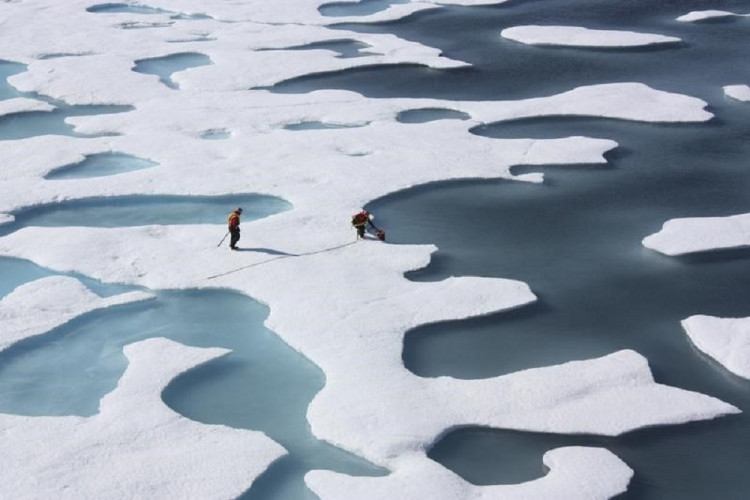A scientist leading a multinational MOSAiC expedition to the North Pole says irreversible planetary warming may have begun.
The German research vessel "Polarstern" spent a year in the Arctic on an ice floe to study the winter at the North Pole as well as the effects of climate change.
"The disappearance of summer sea ice in the Arctic is one of the first landmines in this minefield, one of the tipping points that we set off first when we push warming too far," team leader Markus Rex said.
"One can essentially ask if we haven't already stepped on this mine and already set off the beginning of the explosion."
Rex led the world's most ambitious expedition to the North Pole to date, with 300 scientists from 20 countries participating. In October, its Polarstern vessel returned to Germany with evidence of an Arctic Ocean that might see ice-free summers within decades.
Rex said ice had retreated "faster in the spring of 2020 than since the beginning of records" and "the spread of the sea ice in the summer was half as large as decades ago" when he presented the data eight months later.
The team gathered volumes of data to gain a better understanding of climate-related environmental processes in the North Pole.
Four observational sites were put up on the sea ice in a radius of up to 40 kilometers (25 miles) surrounding the mission's Polarstern ship to conduct the research.
Water samples from underneath the ice were taken to examine plant plankton and bacteria to gain a better understanding of how the marine environment works in severe conditions. Throughout the year, over 100 parameters were monitored almost continuously.
The data will be used to develop models to help anticipate what heatwaves, heavy rains, and storms will look like in the next 20, 50 or 100 years.





